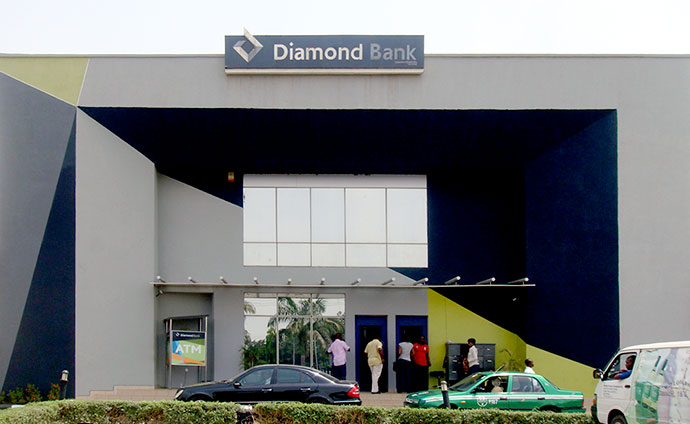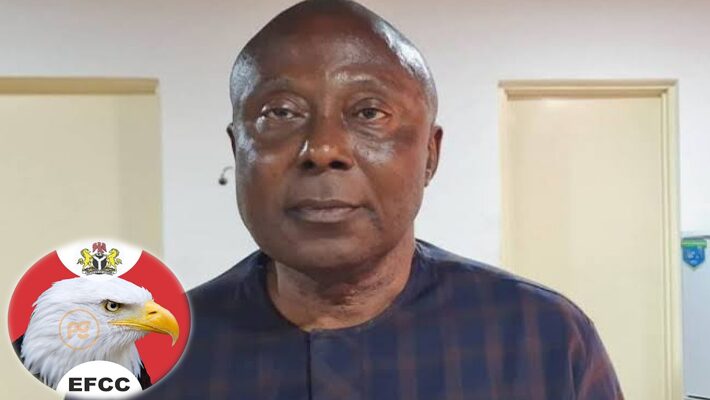- Retail is Future of Banking, Says Diamond Bank CEO
The Group Managing Director/Chief Executive Officer of Diamond Bank Plc, Uzoma Dozie, says retail banking is the future of banking and financial institutions are realigning their strategies to focus on this market segment.
As a forward-looking bank, he said Diamond Bank had taken the decision about four years ago to give its best to the retail segment.
As such, the GMD said the lender chose to deploy technology with retail banking, which had made it to add 10 million new customers to its database in the last three years.
He spoke during an interview with journalists in Lagos.
Dozie said, “We are looking at our business in the longer term and the focus now is retail banking. In the last two years, we have seen ourselves as the fastest growing retail bank in Nigeria. I say that not by the size of balance sheet or profit and loss perspective.
“We are growing our customer base faster than any other bank in the country. And we are doing that not by stealing market share but by growing new businesses and executing our strategy, which is growing retail banking. In executing our strategy, we have to grow new businesses where there was none before; so it was taking banking to people using technology.”
He added, “We are going to use technology by focusing on cost of deployment, access and customer experience. We have managed to add 10 million more customers in our database in three years.”
In its quest to grow further its retail business, the Diamond Bank CEO said the lender took the decision two years ago to sell its African subsidiaries to enable it channel more funds on deployment of technology and training of personnel.
He, however, said the sale was not made until recently because it wanted the best buyer that would make a long-term relationship with the Nigerian bank.
According to Dozie, the Nigeria market offers the best opportunity for retail business growth and the bank needs to make more investments to tap into it.
The African subsidiaries, he said, could not be compared to Nigeria when it came to opportunities in the retail segment.
He said, “We were in Nigeria (the largest economy in Africa) and five West African countries. If you put the population of those countries together, it is not up to Lagos and Port Harcourt. When you looked at the opportunities for Diamond Bank then, they were there because our business was focused on corporate, commercial and retail; it was easy to justify because we were actually following our customers’ businesses across.”
The Diamond Bank boss said the lender opened centres in some African countries because several Nigerian businesses were operating there.
He, however, noted that those markets were no longer attractive the way they used to, following the lender’s decision to focus on retail banking.
The Nigerian market, according to him, has become attractive for retail-focussed banks.
“We have 60 million individuals that are unbanked. On the small business side, we have 17 million unbanked businesses. When you look at where the Nigerian government is focusing their objective and priorities, it is definitely in that space. That is where the future of the Nigerian economy is headed,” Dozie added.
The expert explained, “So, we are riding that way and that is one area we started three years ago and we know we have the skills, resources and capability to do that. So, you have to look at your capital plan, we make a capital plan over a three to five-year period.
“Do you have enough capital to focus on where the biggest opportunity is or are you going to share that capital with Nigeria and also be at the mercy of the central bank which may wake up and say we need more capital from you. And that means they are going to take from the capital that you could have used here in Nigeria.”


 Naira4 weeks ago
Naira4 weeks ago
 News3 weeks ago
News3 weeks ago
 Education4 weeks ago
Education4 weeks ago
 Social Media4 weeks ago
Social Media4 weeks ago
 Economy4 weeks ago
Economy4 weeks ago
 Investment4 weeks ago
Investment4 weeks ago
 Dividends4 weeks ago
Dividends4 weeks ago
 Business3 weeks ago
Business3 weeks ago




























